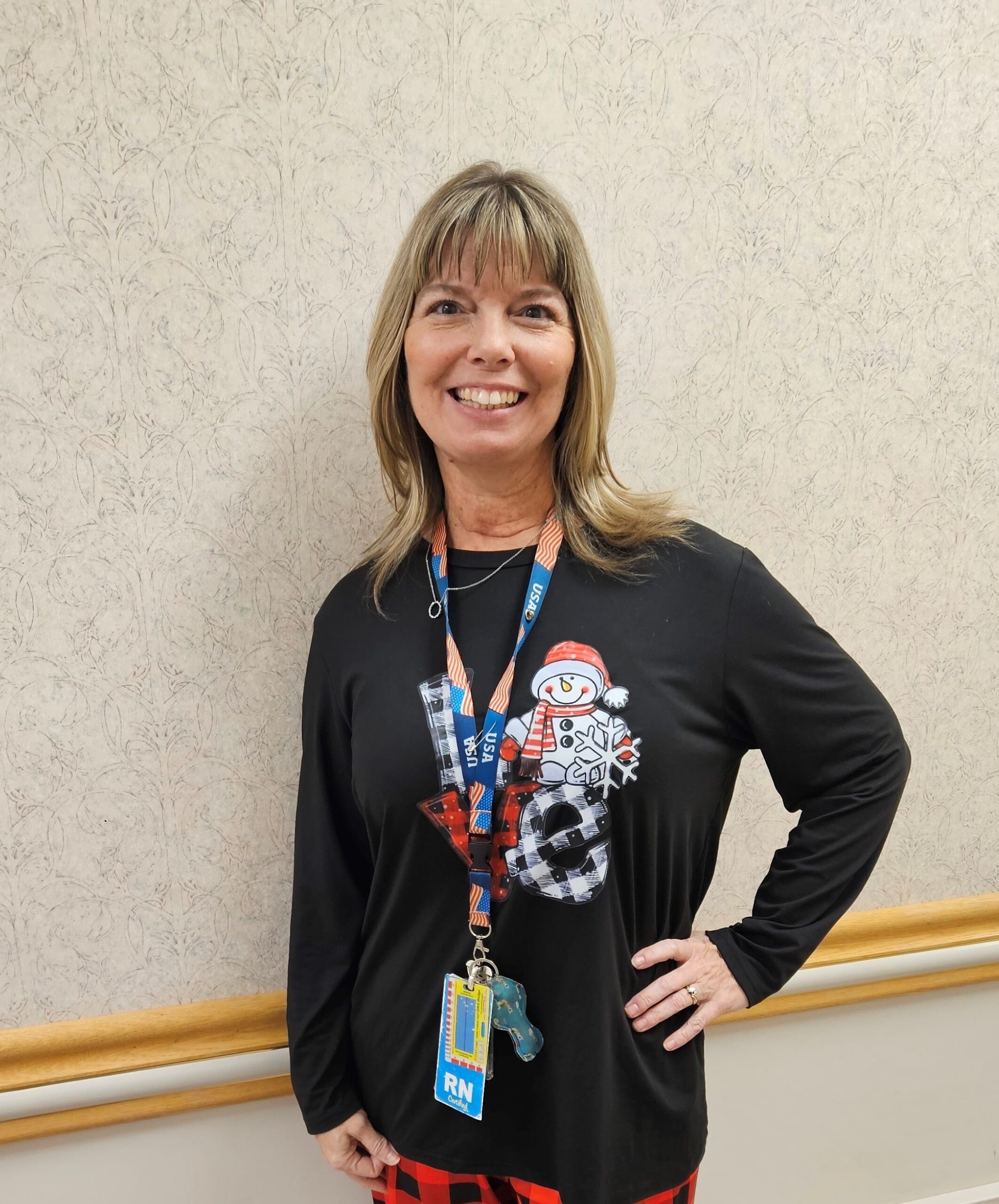
Nurse Manager Christine Balcar
After three years at the Cambridge VA Outpatient Clinic, Nurse Manager Christine Balcar is still enthusiastic about it.
“I think we’re amazing,” she gushed. “Everyone’s doing a great job. And I will tell you, the customer service here at Cambridge, and the staff, they all are so happy to be here. They love taking care of the veterans. And it’s not just a job, because here at Cambridge we are a family.”
That family served 4,600 unique patients in FY2023, providing general outpatient primary care, preventive health and education, and medical screenings. They’ve been doing this since April 1987, when they opened on the campus of the old Eastern Shore Hospital Center. In July 1999, the clinic moved to its current location at 830 Chesapeake Drive.
According to Balcar, Cambridge was chosen for a VA clinic because of its large veteran population. “They tried to look abroad to see where the majority of the population is, to meet their needs, and then certain sites were allocated.”
Besides primary care, the clinic offers many specialty services, including vision care, women’s health, and hearing aids. Physical therapy is available every weekday, while battlefield acupuncture is on the first and third Thursdays of the month, and podiatry is every Thursday. The prosthetics folks come down from Baltimore on the second Tuesday of the month.
There are also mental health services, with social workers at the clinic one day per week. The rest of the time, psychiatrists and therapists are available virtually. If the veteran is not tech-savvy, as many of the older generations are not, he or she can use an iPad on site. But what the clinic offers goes beyond mental and physical health.

“And I know sometimes a veteran will come in,” said Balcar, “and maybe it’s not medical, but maybe he needs assistance, maybe it’s because he’s getting a bill or something.” In such cases, Veterans Benefits representatives are at the clinic on the third Wednesday of the month.
Almost all of the veterans are able to get appointments for urgent needs (93%) and routine care (82%) when they require them, but some are not happy with the wait time.
“We’re always doing customer service recovery here,” explained Balcar, “because they can be frustrated because they call into the clinic and the call center doesn’t answer their call in a timely manner. And sometimes it will say, ‘You’re Queue number 20,’ and then they wait and wait, and sometimes they can wait and sometimes they can’t. And then, like any other organization, calls get dropped.”
“So, a lot of times,” she continued, “if the veterans are unable to get through, they tend to walk into the clinic. So, we have a very busy walk-in, even though we’re not technically a walk-in clinic, the majority are appointments only. I do have the staff, and I too will always jump in and address those veterans’ needs so everything is taken care of.”
That staff includes 18 nurses, four medical personnel, a supervisor, and a site manager. They even occasionally have interns, such as the one who recently did her nurse practitioner rounds at Cambridge. Balcar was happy with the young woman.
“She lives on the island with me,” she revealed, “so, she kind of had an ‘in.’ Somebody I knew who had a need, because I’m always trying to refer people, and people that I know, because I like to grow from within the community. We were in the Cambridge Christmas Parade, so while we were walking with the banners saying, ‘Merry Christmas, Merry Christmas,’ I was doing some nursing recruiting. I was saying, ‘I see a nurse in you,’ and it was cute.”
But, while the staff tries to take care of all of the patients’ needs, sometimes a specialist is required on a day he or she is not on site. Then, someone at the clinic will contact the specialist to see if he or she is available. veterans take the shuttle to either Baltimore or Perry Point.
Also, veterans qualify through the Mission Act to travel, and they can seek primary care providers outside the VA system. It’s an important service that has worked well, and it is initiated by the Cambridge staff, who continue to keep in close contact with those they serve.
“I see the veterans at the grocery store or whatever,” said Balcar. “So, we are very public, and they know who we are. They rely on us a lot.”



Write a Letter to the Editor on this Article
We encourage readers to offer their point of view on this article by submitting the following form. Editing is sometimes necessary and is done at the discretion of the editorial staff.